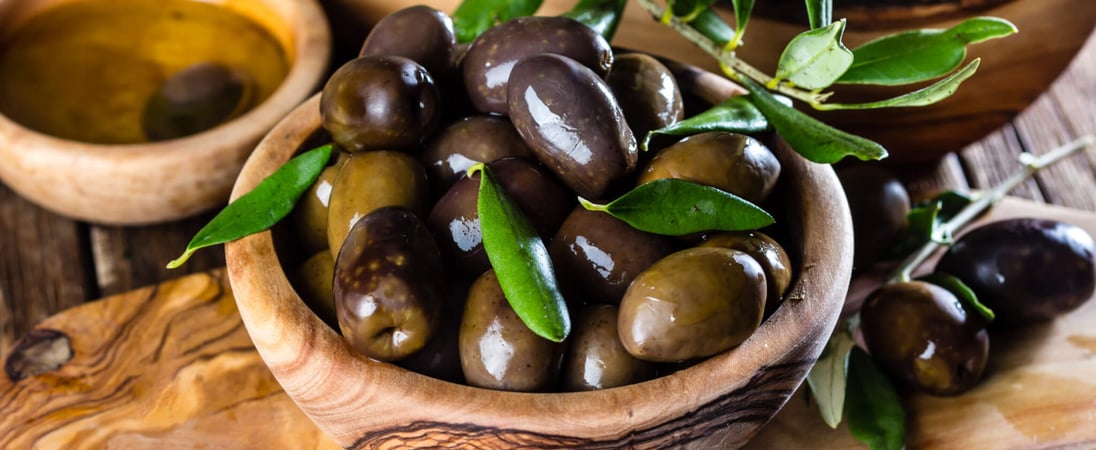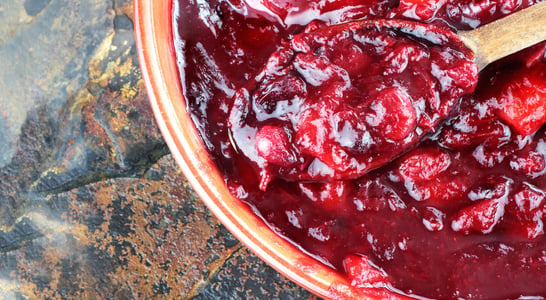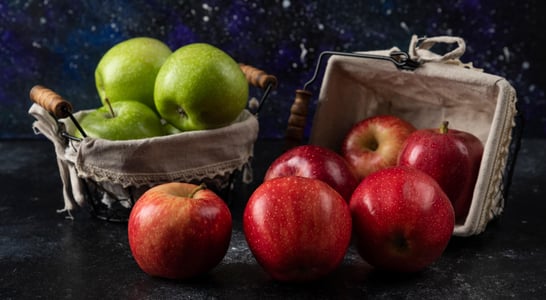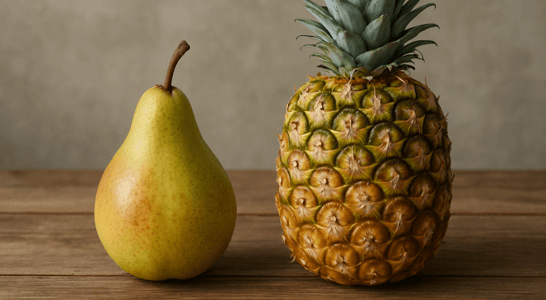
National Olive Day
Small, unassuming, but packed with flavor - these little bites are the perfect addition to any antipasto platter or cocktail hour spread.
A delicious snack enjoyed all over the world, olives are versatile and nutritious. They can be eaten alone as a snack, as part of an appetizer charcuterie board or included in recipes. And, of course, when olives are pressed into extra virgin olive oil, they become even more versatile.
National Olive Day is the ideal time to appreciate and enjoy everything related to this little fruit that packs a big punch in flavor and nutrition.
How to Celebrate National Olive Day
Observing National Olive Day comes with all sorts of ways to enjoy and appreciate everything that has to do with olives. Consider some of these ideas for celebrating the day:
Try a New Variety of Olives
There is so much more to olives than just the green, pimento stuffed ones that your grandma used to serve. With approximately 500 different options for olive varieties, National Olive Day brings with it a great many opportunities to try a new type of olive. For those people who think they don’t like olives, they probably have just not tried the right ones yet!
Here are a few options for olive varieties to get started with:
- Kalamata Olives. This variety of olives that comes from Greece is fairly well known and often appreciated. They are a deep purple color with a shiny skin and a shape similar to almonds, with a rich and fruity flavor that is a bit smoky.
- Liguria Olives. Also called Taggiasca olives, this variety is grown in the most northwestern region which is near France’s Niçoise olive region. They are a bit smaller, often served green and are usually cured with herbs like rosemary, thyme and bay leaves.
- Mission Olives. This American variety of olive hails from California in the 1700s. Its origins were thought to be Spanish, but scientists can’t find a link. The flavor of Mission olives, which can be found green or black, is mild and bright with a grassy hint.
- Manzanilla Olives. From Spain, the most prolific olive grower, comes this variety that has a smoky, almondy flavor. It may be found stuffed with a pimento, or cracked and dressed with olive oil and served with delicious crusty bread.
Host a National Olive Day Gathering
Looking for an excuse to get friends or family members together for a little, intimate gathering. Use National Olive Day as a reason! Invite a few friends over for some appetizers and wine, enjoying a taste test of different types of olives and embracing the fun of a Mediterranean lifestyle.
Learn More About Olives
Many people aren’t well-versed in the world of olives–and that’s okay! For instance, most people don’t realize that the oldest olive tree in the world is around 4,000 years old and can still be found producing fruit in its location on the island of Crete.
Of course, other cool pieces of information like that are available and this is a great time to learn a few interesting tidbits. And then, of course, these bits of olive trivia can be used to impress coworkers and neighbors while reminding them to celebrate National Olive Day.
Try out some of these fun facts to get started:
-
The darker the olive, the riper it was when it was picked. Black olives are just olives that used to be green but got darker as they stayed on the tree longer.
-
Spain is the largest producer of olives in the world, followed by Italy, Turkey, Greece and Morocco.
-
Olive trees are normally pruned and kept fairly short to make it easy for them to bear fruit but, if left to themselves, they can actually grow as large as 26-49 feet in height.
-
Olive trees live way longer than humans. In fact, the average lifespan of an olive tree is between 300 and 600 years.
Visit a Mediterranean Restaurant
One excellent way to enjoy National Olive Day is to take a date, or the whole family, out to an authentic Mediterranean restaurant. This will allow not only the enjoyment of the olives themselves, but everything that goes with it. They can be enjoyed with a bowl of hummus, some feta cheese or an Israeli cucumber and tomato salad.
Remember the Health Benefits of Olives
Adding olives to a meal or having them as a snack can be a healthy part of a Mediterranean, keto friendly, low carb diet. Olives contain fiber, healthy fats, vitamin E and other antioxidants which mean they can help reduce the risk of heart disease, stroke, diabetes and possibly even certain cancers.
National Olive Day is the perfect time to add these healthy, tasty little treats into the pantry and onto the table!
History of National Olive Day
Olives have a rich and deep history, and they have been appreciated in many cultures over time. These little fruits are believed to have originated in Asia Minor and then spread through Palestine, Iran and Syria to the Mediterranean region where they found a home at least 6000 years ago.
The olive tree is one of the oldest cultivated trees in the world and its fruit, as well as the oil that comes from it, has been beloved and revered for several millennia. Not only is olive a healthy oil for cooking and eating, many people like to include it as an ingredient in their skin care and beauty regimens because of its healthful properties.
All dotted throughout Spain, Greece, Italy, and Turkey, groves of olive trees bring olives which are often eaten on their own or pressed into extra virgin olive oil. Olives are a huge industry worldwide and the demand for table olives continues to grow all over the globe. More than 500 different varieties of olives are cultivated today, with all sorts of different flavors and even unique colors.
National Olive Day was founded in 2015 by Divina, an arm of the FOODmatch specialty Mediterranean foods company that is located in the United States. It was decided that Olive Day should be placed on the first day of June as a finale to the end of May, which is a month when some people celebrate the Mediterranean Diet.
National Olive Day Timeline
4000-6000 BC
Olive plants are first cultivated
An important part of the Mediterranean diet, olive trees are domesticated around this time.[1]
3000-1100 BC
Stories circulate of olives’ origins
In Greek Mythology, the goddess Athena is said to have created the olive tree during a contest between herself and Poseidon, god of the sea.[2]
1769
Olive cuttings are first planted in California
Brought by Spanish missionaries, the olive trees are planted and cultivated in San Diego.[3]
1908
First successful planting of olive trees in Japan
Shodo Island becomes an important place for olive cultivation for the small country.[4]
1919
Olive Oyl makes her first appearance
A beloved cartoon character usually associated with Popeye, Olive Oyl actually predates Popeye by 10 years in the comic strip called Thimble Theatre.[5]
National Olive Day FAQs
Are olives good for you?
Olives contain Vitamin E and antioxidants, which means they can help with heart health and lower risk of disease like stroke, diabetes and even cancer.[1]
Are olives fruit?
While many people might think of them as vegetables, olives are actually stone fruits in the same family as mangoes or cherries.[2]
Do olives have seeds?
Because they are fruit, olives have seeds or pits that are often discarded as waste during production or while being eaten.[3]
How do olives grow?
Olives grow as fruit on short trees, often found in groves in very hot climates with low humidity.[4]
Should olives be refrigerated?
Although they do not necessarily need to be refrigerated, olives will maintain a longer shelf life if kept in the refrigerator after opening.
Also on ...
View all holidaysWorld Milk Day
Start your day with a glass of calcium-rich milk, visit a local dairy farm, or see what milk alternatives like soy, oat, or almond milk you might enjoy.
National Go Barefoot Day
Put your feet in direct contact with the Earth by going barefoot, or donate any shoes you don’t wear to those who have no choice but to go barefoot.
Dinosaur Day
Discover a lost world of colossal creatures, where gigantic predators and gentle giants once roamed the earth.
World Reef Awareness Day
Join the reef revolution and become a hero for our ocean friends! By spreading awareness and taking action, we can protect these colorful communities and ensure they thrive for generations to come.
We think you may also like...
National Cranberry Relish Day
That zesty, tangy burst of flavor, a delightful companion to turkey, bringing a pop of taste to every Thanksgiving feast.
International Eat An Apple Day
Keep those pesky doctors at bay—at least for a day. Try a new apple-based recipe, slice one up to eat with peanut butter or honey, or just bite into a crisp apple.







